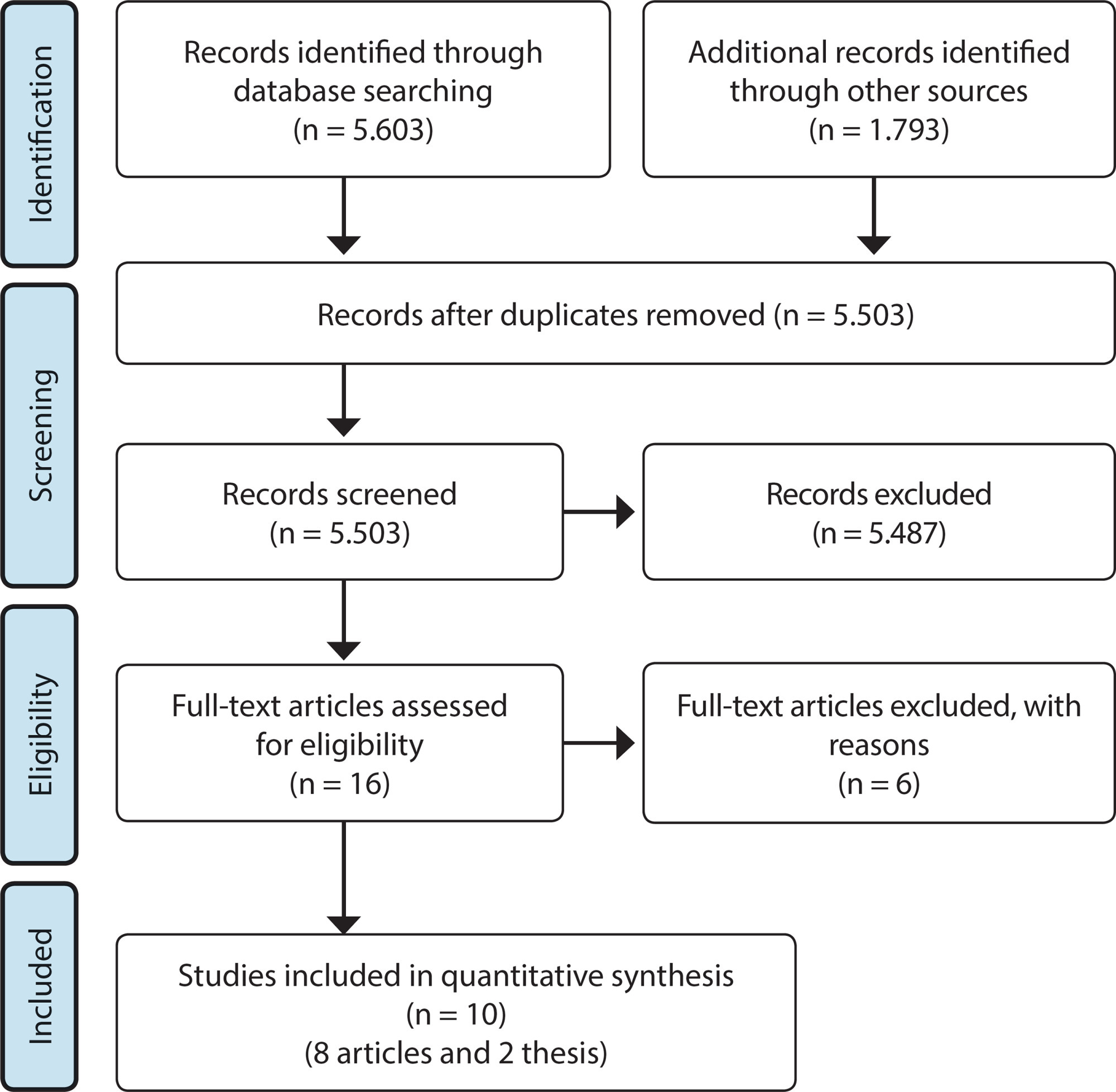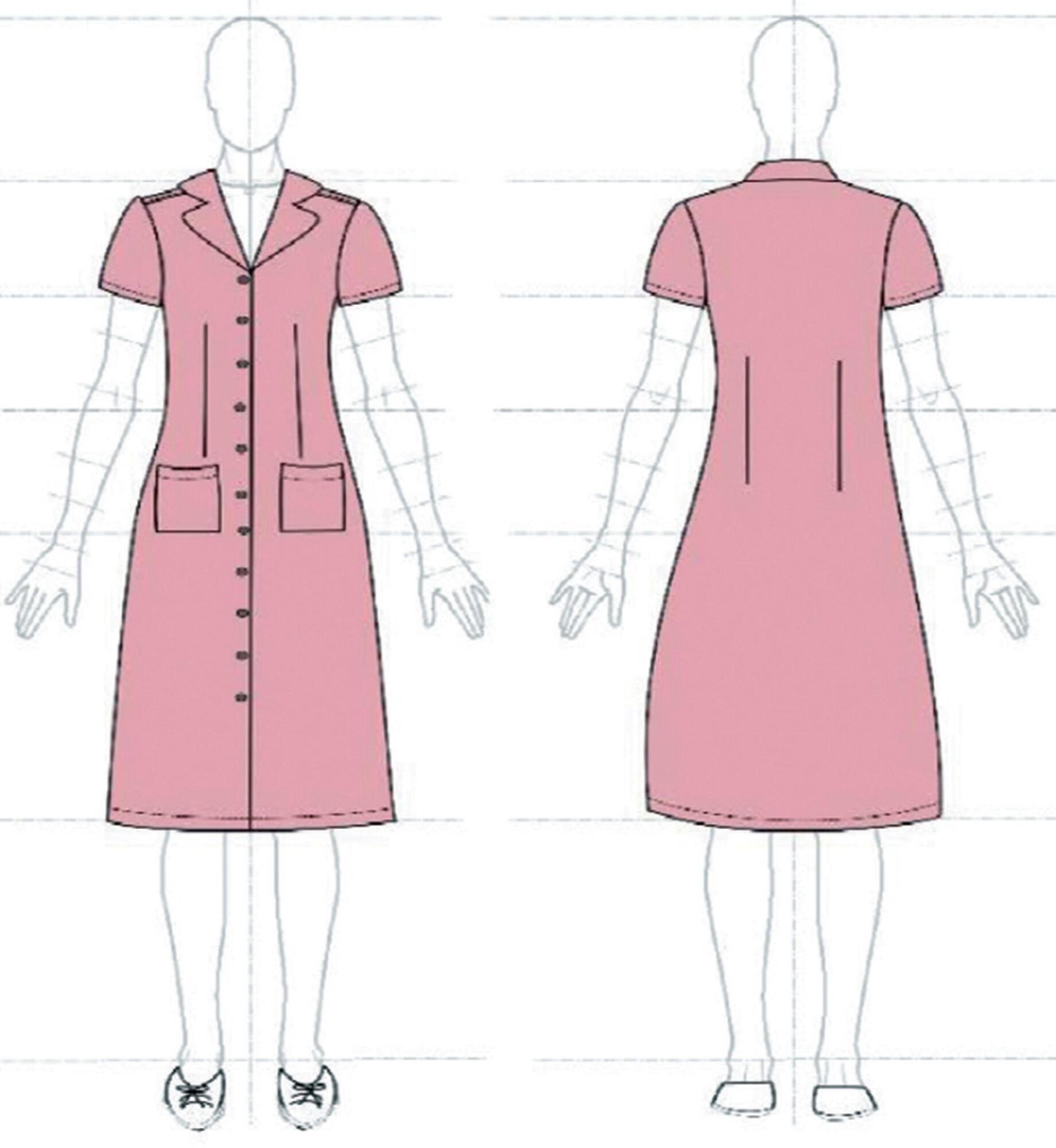-
ORIGINAL ARTICLE
Primary socialization in the process of professional choice and identity of nurses: a Dubarian approach
Revista Brasileira de Enfermagem. 2021;74(2):e20200293
06-11-2021
Abstract
ORIGINAL ARTICLEPrimary socialization in the process of professional choice and identity of nurses: a Dubarian approach
Revista Brasileira de Enfermagem. 2021;74(2):e20200293
06-11-2021DOI 10.1590/0034-7167-2020-0293
Views0See moreABSTRACT
Objectives:
to analyze the experiences of management nurses over the primary socialization process that contributed to their professional choice and identity.
Methods:
qualitative and explanatory study grounded in Dubar's theory, carried out with 11 management nurses. Semi-structured interviews were conducted, transcribed, and categorized by applying discourse analysis.
Results:
the motivations for the professional choice and identity of management nurses were found. They were related to family influence in childhood, nursing representations, perception of care practices experienced in a health-related situation in the family, choice of nursing given its academic titles, lack of knowledge about the nursing profession, and assertive choice of this profession.
Final Considerations:
professional choice was closely linked to initial social processes in people's lives and the idea of a socially and uniquely built professional identity.
Views0

Abstract
ORIGINAL ARTICLEPrimary socialization in the process of professional choice and identity of nurses: a Dubarian approach
Revista Brasileira de Enfermagem. 2021;74(2):e20200293
06-11-2021DOI 10.1590/0034-7167-2020-0293
Views0See moreABSTRACT
Objectives:
to analyze the experiences of management nurses over the primary socialization process that contributed to their professional choice and identity.
Methods:
qualitative and explanatory study grounded in Dubar's theory, carried out with 11 management nurses. Semi-structured interviews were conducted, transcribed, and categorized by applying discourse analysis.
Results:
the motivations for the professional choice and identity of management nurses were found. They were related to family influence in childhood, nursing representations, perception of care practices experienced in a health-related situation in the family, choice of nursing given its academic titles, lack of knowledge about the nursing profession, and assertive choice of this profession.
Final Considerations:
professional choice was closely linked to initial social processes in people's lives and the idea of a socially and uniquely built professional identity.


-
ORIGINAL ARTICLE
Social identity of transgender persons: concept analysis and proposition of nursing diagnoses
- Nathália Leal Silva
 ,
, - Rafael Oliveira Pitta Lopes
 ,
, - Graziele Ribeiro Bitencourt
 ,
, - Hércules Rigoni Bossato
 ,
, - Marcos Antônio Gomes Brandão
 , [ ... ],
, [ ... ], - Márcia Assunção Ferreira

12-21-2020
Abstract
ORIGINAL ARTICLESocial identity of transgender persons: concept analysis and proposition of nursing diagnoses
Revista Brasileira de Enfermagem. 2020;73(suppl 5):e20200070
12-21-2020DOI 10.1590/0034-7167-2020-0070
- Nathália Leal Silva
 ,
, - Rafael Oliveira Pitta Lopes
 ,
, - Graziele Ribeiro Bitencourt
 ,
, - Hércules Rigoni Bossato
 ,
, - Marcos Antônio Gomes Brandão
 ,
, - Márcia Assunção Ferreira

Views0ABSTRACT
Objective:
To analyze the concept of social identity of transgender persons and develop nursing diagnoses related to it.
Methods:
A concept analysis according to the Walker and Avant model. A scope review was carried out with a search of eight databases, a portal and two information systems, during June and July 2019. Articles, theses, and dissertations were analyzed in Portuguese, English, and Spanish, with no time frame definition.
Results:
Of the 6.847 productions, 10 were included, and the concept of social identity was described in 4 of them. Critical, prior, and consequential attributes for the social identity of transgender persons were identified, and the analysis of the concept substantiated the proposal of the diagnosis: Willingness to improve the social identity of the transgender person.
Conclusion:
Social identity establishes a relationship with health, and the proposed nursing diagnosis strengthens the sense of belonging of transgender people, enhancing their rights as citizens.
Keywords:Concept FormationHealth PromotionNursing DiagnosisSocial IdentificationTransgender PersonsTranssexualismSee moreViews0

Abstract
ORIGINAL ARTICLESocial identity of transgender persons: concept analysis and proposition of nursing diagnoses
Revista Brasileira de Enfermagem. 2020;73(suppl 5):e20200070
12-21-2020DOI 10.1590/0034-7167-2020-0070
- Nathália Leal Silva
 ,
, - Rafael Oliveira Pitta Lopes
 ,
, - Graziele Ribeiro Bitencourt
 ,
, - Hércules Rigoni Bossato
 ,
, - Marcos Antônio Gomes Brandão
 ,
, - Márcia Assunção Ferreira

Views0ABSTRACT
Objective:
To analyze the concept of social identity of transgender persons and develop nursing diagnoses related to it.
Methods:
A concept analysis according to the Walker and Avant model. A scope review was carried out with a search of eight databases, a portal and two information systems, during June and July 2019. Articles, theses, and dissertations were analyzed in Portuguese, English, and Spanish, with no time frame definition.
Results:
Of the 6.847 productions, 10 were included, and the concept of social identity was described in 4 of them. Critical, prior, and consequential attributes for the social identity of transgender persons were identified, and the analysis of the concept substantiated the proposal of the diagnosis: Willingness to improve the social identity of the transgender person.
Conclusion:
Social identity establishes a relationship with health, and the proposed nursing diagnosis strengthens the sense of belonging of transgender people, enhancing their rights as citizens.
Keywords:Concept FormationHealth PromotionNursing DiagnosisSocial IdentificationTransgender PersonsTranssexualismSee more


- Nathália Leal Silva
-
RESEARCH
Clothing and professional identity in the training of nurses in the city of Juiz de Fora
- Regina Lucia Muniz de Almeida,
- Angela Aparecida Peters Rodrigues,
- Gisele Fernandes Tarma,
- Mariângela Aparecida Gonçalves de Figueiredo,
- Antônio José de Almeida Filho, [ ... ],
- Maria Angélica de Almeida Peres
01-01-2018
Abstract
RESEARCHClothing and professional identity in the training of nurses in the city of Juiz de Fora
Revista Brasileira de Enfermagem. 2018;71(suppl 4):1548-1555
01-01-2018DOI 10.1590/0034-7167-2017-0522
- Regina Lucia Muniz de Almeida,
- Angela Aparecida Peters Rodrigues,
- Gisele Fernandes Tarma,
- Mariângela Aparecida Gonçalves de Figueiredo,
- Antônio José de Almeida Filho,
- Tânia Cristina Franco Santos,
- Maria Angélica de Almeida Peres
Views0See moreABSTRACT
Objective:
To understand the meaning of the transformations that occurred in the clothing of EEHB students and their role in the construction of a professional identity of nurses in Juiz de Fora.
Method:
Historical and social qualitative study from 1965 to 1978. Oral and written sources were used. Oral sources were produced with the Thematic Oral History technique, with 10 collaborators. The theoretical frameworks used were the concepts of identity of Claude Dubar, and concepts of clothing and their symbolic meanings of Roland Barthes.
Results:
The EEHB nursing students’ uniform represented a brand, an essential symbol in the construction and consolidation of the nurse’s identity in the city of Juiz de Fora.
Conclusion:
The uniform was recognized as an object of identification of nurses in the city, giving them a social image of credibility for their training.
Views0

Abstract
RESEARCHClothing and professional identity in the training of nurses in the city of Juiz de Fora
Revista Brasileira de Enfermagem. 2018;71(suppl 4):1548-1555
01-01-2018DOI 10.1590/0034-7167-2017-0522
- Regina Lucia Muniz de Almeida,
- Angela Aparecida Peters Rodrigues,
- Gisele Fernandes Tarma,
- Mariângela Aparecida Gonçalves de Figueiredo,
- Antônio José de Almeida Filho,
- Tânia Cristina Franco Santos,
- Maria Angélica de Almeida Peres
Views0See moreABSTRACT
Objective:
To understand the meaning of the transformations that occurred in the clothing of EEHB students and their role in the construction of a professional identity of nurses in Juiz de Fora.
Method:
Historical and social qualitative study from 1965 to 1978. Oral and written sources were used. Oral sources were produced with the Thematic Oral History technique, with 10 collaborators. The theoretical frameworks used were the concepts of identity of Claude Dubar, and concepts of clothing and their symbolic meanings of Roland Barthes.
Results:
The EEHB nursing students’ uniform represented a brand, an essential symbol in the construction and consolidation of the nurse’s identity in the city of Juiz de Fora.
Conclusion:
The uniform was recognized as an object of identification of nurses in the city, giving them a social image of credibility for their training.



Search
Search in:
PALAVRAS-CHAVE
Aged Atenção Primária à Saúde COVID-19 Cuidados de Enfermagem Educação em Enfermagem Educação em Saúde Enfermagem Estudos de Validação Health Education Idoso Mental Health Nursing Nursing Care Patient Safety Primary Health Care Qualidade de Vida Quality of Life Saúde Mental Segurança do Paciente Validation Studies

